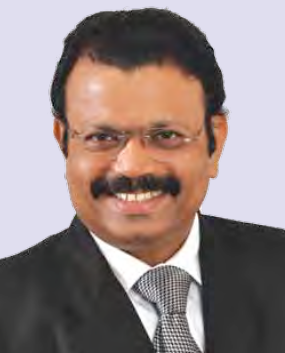 Dr Rajeev Boudhankar, Vice President, Kohinoor Hospital, is optimistic about taking bold steps in his hospital operation
Dr Rajeev Boudhankar, Vice President, Kohinoor Hospital, is optimistic about taking bold steps in his hospital operation
What is your take on the Indian healthcare sector? How do you rate Indian healthcare when it comes to providing healthcare to all?
According to the Department of Industrial Policy and Promotion, during April 2000-March 2012, the hospitals and diagnostic centres in India have attracted FDI worth USD 1.34 billion, while the drugs and pharmaceuticals and the medical and surgical appliances industries have attracted FDI worth USD 9.19 billion and USD 521.45 million respectively. The hospital services market represents one of the most lucrative segments of the Indian healthcare industry. On the back of steady rising demand, the hospital services industry is expected to grow to USD 81.2 billion by 2015.
Hospitals are attractive business models for long term investors with the project Internal Rate of Return (IRR) being approximately 10-15 percent for tier I and metro cities, 20- 25 percent for tier II cities and 25-30 percent for tier III cities. During the period of financial year 2011-12 to financial year 2013-14, the Indian Pharma market is expected to grow at a CAGR of 15.3 percent. Indian hospitals are fast becoming the preferred choice for an increasing number of foreigners.

What are the IT investments your hospital has made over the years? How do you think ICT is a game changer in the overall hospital operation?
Our hospital has invested in hardware as well as software in a big way. We have online Hospital Information System (HIS) with all HIS modules in place. We have specialised software in the CT scan and Cath lab for enhancing the quality of im- ages, PACS in the imaging department, RFID technology for transmitting pathology lab samples through automatic system, bar coding for medicines and consumables in the pharmacy and stores. We have a specialised HR related software for all HR issues including attendance, leaves, Rota duties, payroll management, performance appraisals, etc. ICT is a game changer for hospital operations because it helps cut down errors of human nature like wrong drugs, wrong patient samples for surgery, wrong patient for investigations in any diagnostic departments including interventions.
What are the top five challenges you face in the hospital operation and ution and how do you sail through them?
Attrition of well trained employees is one challenge: Some of the strategies include doctor engagement programmes, employee engagement programs, better hygiene factors along with competitive salaries, crèche for working female employees, T&D, research facilities for senior doctors, etc
What is your take on the term affordable healthcare? What strategy do you think can come handy in making the term true for Indian population?
Affordable is a subjective term. Affordability for middle classes is different from that Below Poverty Line population. Hence, different strategies need to be thought for different segments by different agencies like Government supported hospitals v/s private hospitals. Universal right to healthcare though sounds utopian, can be a step in this direction. It needs to be incorporated in the Constitution of India as a fundamental right.

What are your views on the regulatory issues of healthcare?
The regulations and laws needed to start a hospital and then make it operational are so many in number that it seems that the government is more interested in controlling the health- care industry than making it accessible and open to investors and entrepreneurs who want to enter this sector. Health is one of the pillars of world peace and therefore needs better treatment at the hands of the regulatory authorities
Be a part of Elets Collaborative Initiatives. Join Us for Upcoming Events and explore business opportunities. Like us on Facebook , connect with us on LinkedIn and follow us on Twitter , Instagram.












